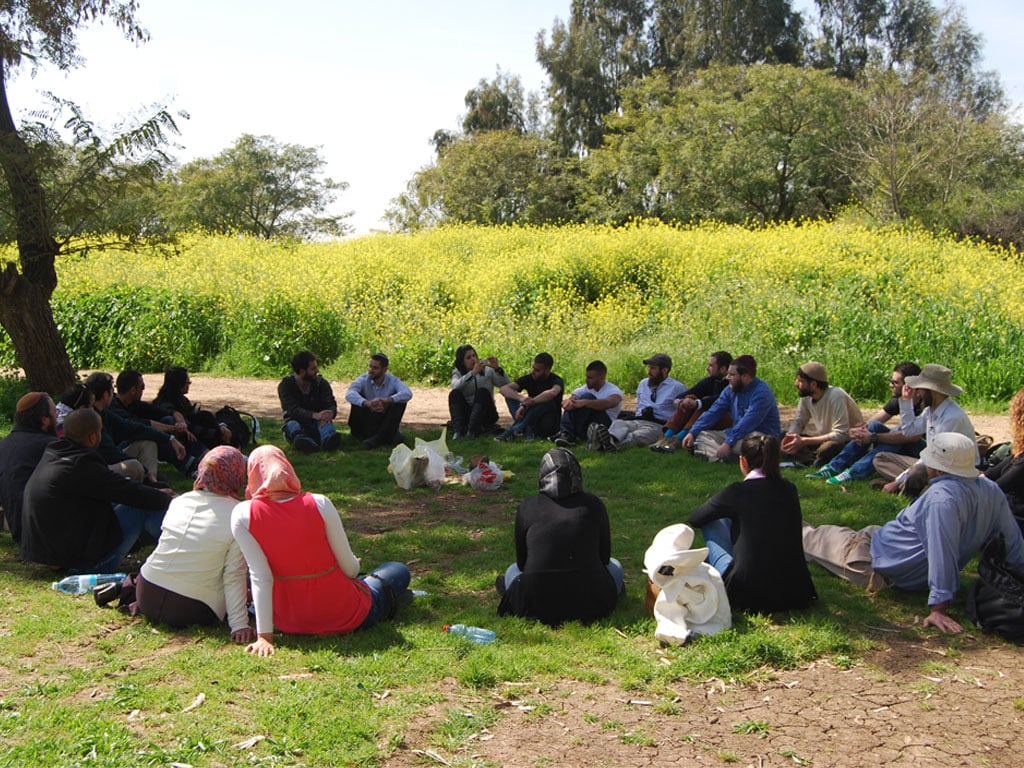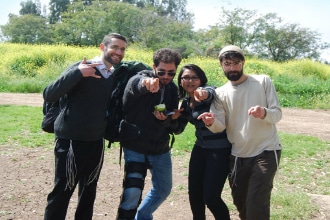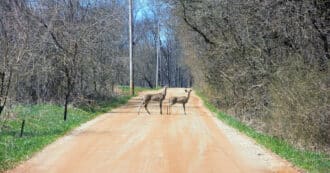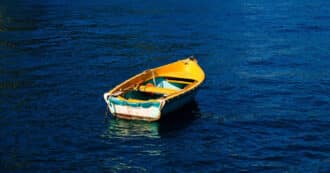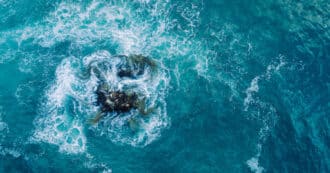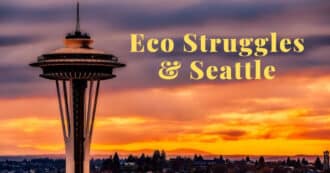By Jackie Zitelman for The Interfaith Center for Sustainable Development
On March 7th, 2013 I was fortunate to take part in the meeting of two groups that under most other circumstances would not spend three hours together in a nature reserve. The Jewish group consisted of Jerusalem-based rabbis and rabbinical students from Sulam Yaakov, the Nachlaot Beit Midrash for Leadership Development. The Muslim group was comprised of students and staff from Al Qasemi Academy, located in Baka al-Gharbia. The project was implemented and co-sponsored by The Interfaith Center for Sustainable Development (ICSD) and Rabbis for Human Rights, based on support from The Julia Burke Foundation, Anne Frank Fonds, and the British Shalom Salaam Trust. We met at the Yarkon National Park, a nature reserve that extends over 3,250 acres and includes the Tel Afek (Antipatris) fortress overlooking the Yarkon springs.
This magnificent place is the source of the Yarkon River. After everyone got off of his or her respective bus we headed into the nature reserve.
The dichotomy between the two groups was palpable; everyone stayed close to who they knew. We began the morning in a circle performing various types of icebreakers to learn one another’s names and to make the interaction a little more comfortable. It was fun and it seemed to achieve what the leaders had intended: the circle was no longer two semi-circles, rather everyone was mixed. We were then given the instructions to divide ourselves into groups of three. In our groups we followed a path denoted by signs with questions written in Arabic, Hebrew, and English. Each person in the small group shared their answer with the other two. The first questions we were asked were, “What does your name mean?
Where does it come from? Why did your parents choose it for you?” The questions gradually became more and more personal, “How long has your family been in this land? Would you want to live anywhere else (inside or out of the land)? If yes, where and why? If not, why not?” After answering six of these sets of questions along a path within the park, we all gathered together in a circle under a tree next to a large and beautiful pond. We were asked what surprised us the most, what the experience was like, and what questions stood out. The majority admitted that this was the first time in their lives interacting in a meaningful way with “the other.” One young man said, “I thought it would be difficult at first, but we had some great and interesting conversations.” One student from Sulam Yaaakov said that he learned from his fellow group member that the Koran mentions the Jewish people and that he is interested in learning more about that.
Participants mentioned how they want to tour the four quarters of the Old City in Jerusalem with one another and learn about one another’s religion. At the end of the seminar the perception of ‘other’ had changed dramatically. Not only did the seminar take place within a national park, but the seminar facilitators talked about the ecological significance of the site in relation to our coming together. First, the site is the source of the Yarkon River and water issues are a key area for interfaith environmental cooperation. Second, the site is home to endangered species as well as some of the 500 million migrating birds that pass through the Holy Land twice a year. At the very end of the program the ICSD educator explained to us that environmental issues transcend ethnicity and faith and that we can use this commonality to work together in protecting God’s creation.

